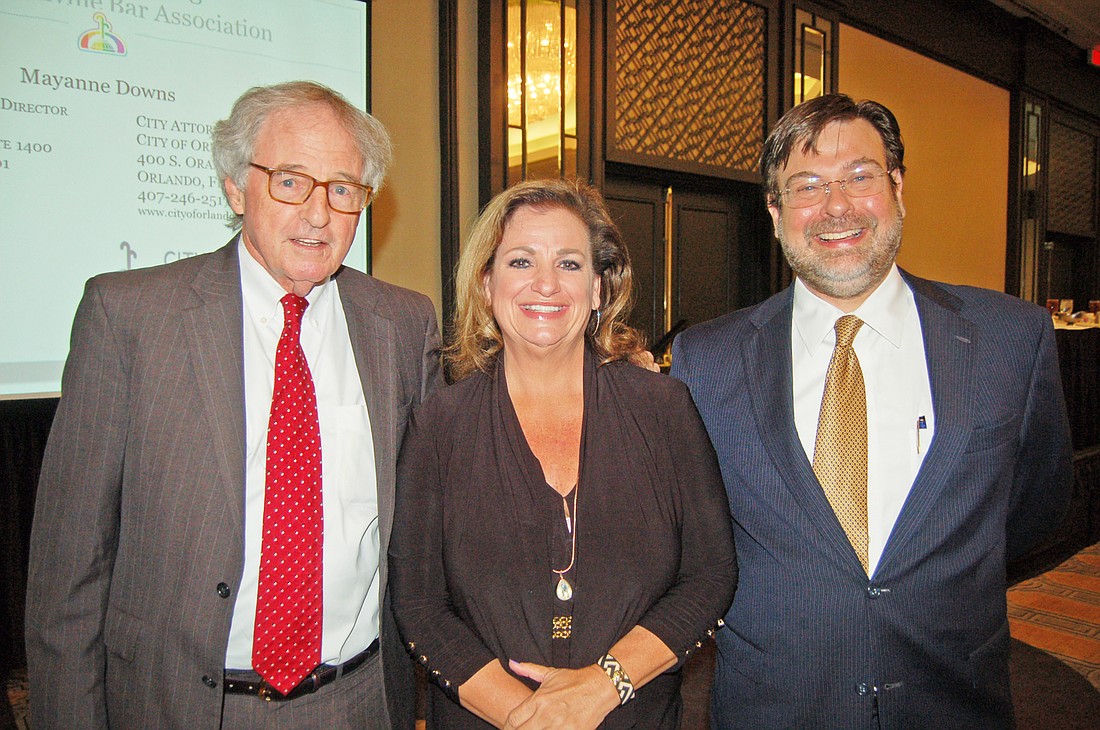
Orlando City Attorney Mayanne Downs remembers what she was doing minute-by-minute beginning at 3:15 a.m. on June 12, 2016.
That’s when she got the call from Orlando Mayor Buddy Dyer notifying her there had been a massacre at the Pulse nightclub.
Two hours later, police had used an armored vehicle to knock a hole in the nightclub’s wall near a bathroom, confronted the shooter, killed him and then freed 30 hostages.
It is the worst mass shooting in U.S. history, with 50 people dying in the club and after, including the perpetrator, Omar Mateen.
Downs recounted the events of that night and the months after — with particular emphasis on legal side of the incident — Wednesday at The Jacksonville Bar Association’s monthly meeting.
“As is always the case, lawyers are at the center, woven into the fabric of the community’s problem,” said Downs, who also is president and managing director of the GrayRobinson law firm and a past president of The Florida Bar.
Her first legal task was to prepare an order for Dyer to sign declaring a state of emergency to activate the Florida Department of Law Enforcement.
Other legal issues during the hostage standoff involved coordination of 27 law enforcement agencies that responded to the scene, including the FBI.
After the crime scene was secured, Mateen’s body was taken to the medical examiner’s office. When it wasn’t claimed by a family member, the city, which Downs said had jurisdiction, was planning to have the Coast Guard bury Mateen at sea.
“But, fortunately, a family member picked it up,” she said.
The legal issues didn’t let up post-event, Downs said.
One issue was what to do with more than $33 million that had been donated to victims who had been injured and the families of those murdered. The city retained a professional funds manager to consolidate the donations and ensure the money was properly disbursed.
“Every dime we collected, we distributed to victims and families,” Downs said.
Another legal issue involved thousands of public records, such as 911 calls and cellphone videos made inside the club that were the focus of a lawsuit filed by The New York Times and other plaintiffs when the city refused to release some of the records.
Downs said while most 911 calls are subject to disclosure under Chapter 119 – the “Sunshine” laws – certain records were exempt under Chapter 406, which exempts from public records law audio or video recordings of the killing of a person.
Legal issues surrounding the incident even extended to building and safety codes weeks after the tragedy, Downs said. When the building was inspected, the city felt it was structurally unsafe because of the number of bullet holes.
Downs said she learned from the experience that “senseless acts remind us that nothing is promised” and “where there is tragedy or a community problem, there is always a lawyer willing to help.”
The association’s next meeting is scheduled at noon Oct. 20 at the Omni Jacksonville Hotel with guest speaker Al Letson, a nationally recognized public radio host, poet and performer from Jacksonville.